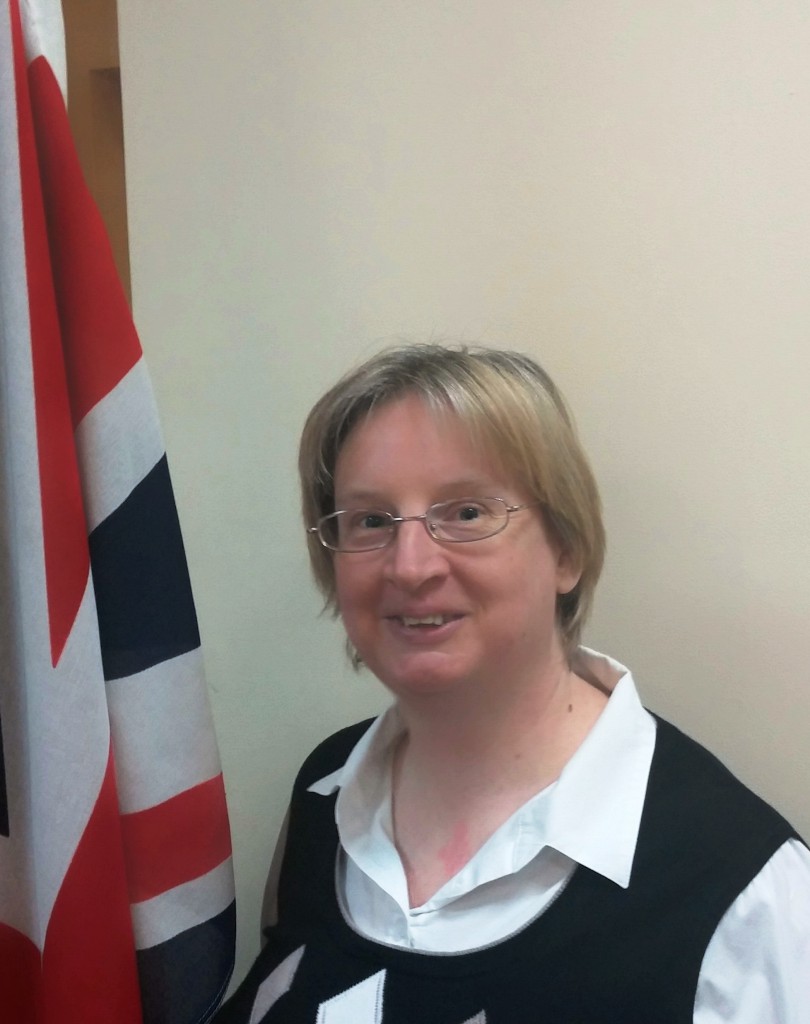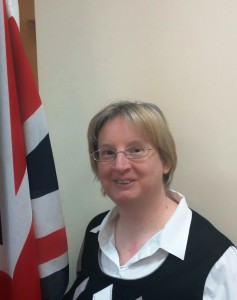5th March 2015 Tashkent, Uzbekistan
Guest blog: British and Uzbek women – representatives of diverse cultures with common aspirations

 On the eve of International Women’s Day the Deputy Head of Mission Fiona Maxton highlights the role women play in the Foreign and Commonwealth Office (FCO) and UK efforts in preventing violence against women and promoting their rights globally. She also illustrates the British Embassy’s work that makes our small contribution to improving the status of women in Uzbek society.
On the eve of International Women’s Day the Deputy Head of Mission Fiona Maxton highlights the role women play in the Foreign and Commonwealth Office (FCO) and UK efforts in preventing violence against women and promoting their rights globally. She also illustrates the British Embassy’s work that makes our small contribution to improving the status of women in Uzbek society.
The British diplomatic service is considered to be one of the best in the world thanks to the professionalism and dedication of its 14,000 employees, nearly 10,000 of who are local employees, in 160 countries worldwide. I personally believe that the success of the service is tightly linked to the fact that, today, about 45% of all employees in the FCO are women. Here in Tashkent a third of the Embassy is women.
Over the last thirty years, the role of women in the British civil service, including the diplomatic service, has significantly increased. During the life of just one generation we have witnessed a growth in the proportion of female employees in the FCO. The number of leadership positions occupied by women is steadily growing. For example, at the very beginning of my professional career in the FCO, in the late 1980s, there was just one female of Ambassador rank. Nowadays, there are about 40 women Ambassadors representing the UK around the world, including our Ambassadors in Kazakhstan and Kyrgyzstan. However, we are proud to remember that the first female diplomat accredited as an Ambassador Extraordinary and Plenipotentiary in Central Asia was Dame Barbara Hay, who was the second British Ambassador to Uzbekistan between 1995 and 1999.
The UK Government strongly believes that it has the moral obligation to protect women’s rights around the world. In particular, we actively support international efforts in combating and preventing sexual violence in armed conflicts that primarily affects women and girls. The culture of impunity that dominates sexual violence in conflicts fuels the conflicts and represents a threat to establishing peace and security in countries that experienced conflicts in the recent past.
Former British Foreign Secretary William Hague believed that the UK has the diplomatic power to bring changes. In conjunction with Hollywood actress and Special Envoy to the UN High Commissioner for Refugees Angelina Jolie, he launched the Prevention of Sexual Violence Initiative (PSVI) in 2012. In September 2013 Secretary Hague presented a draft of the Declaration on Commitment to End Sexual Violence in Conflicts to the UN General Assembly. The document was supported by 150 UN member states, including Uzbekistan – the first Central Asian country to sign the document.
In June 2014, London hosted the Global Summit to End Sexual Violence in Conflict. 140 countries, including Uzbekistan attended. The International Protocol on Documentation and Investigation of Sexual Violence in Conflict was adopted during the summit. The document is designed to help to strengthen prosecutions for rape in conflict, increasing prospects for successful convictions and shatter the culture of impunity for sexual violence.
We believe that only an educated, economically sustainable woman, living in an environment free of violence and fully enjoying her civil and political rights, is able to contribute to the building of a safe and prosperous society. That’s why a number of the Foreign and Commonwealth Office’s (FCO) and Department for International Development’s (DFID) efforts are directed towards increasing the economic and political role of women in various parts of the world. This includes the execution of the 2014-2017 UK National Action Plan (NAP) for the implementation of UN Security Council Resolution No.1325 on Women, Peace and Security. Among other activities, the plan provides a number of measures which the UK Government will be taking to promote women rights in conflict-affected states such as Afghanistan, Burma, Democratic Republic of the Congo, Libya, Somalia and Syria.
Our diplomatic missions abroad are implementing numerous joint projects in cooperation with local and international partners aimed at protecting the rights of women and improving their status in the society, including in Uzbekistan. For example, in 2014 the British Embassy in Tashkent implemented several projects in partnership with international organisations, local women’s NGOs and companies. One project was the publication of booklets about the activities of NGOs providing legal, social and psychological assistance to women. Another was the Women in Business Week organised in the city of Nukus, Karakalpakstan, where around 100 women participants underwent training on entrepreneurial skills. Furthermore, in 2014 two young women scholars from Uzbekistan were awarded the UK Government’s Chevening Scholarship enabling them to study for a Master’s Degree at the best universities in Britain. After completion of their studies in the UK they will return home to contribute to Uzbekistan’s development and become yet another example of a modern and successful Uzbek woman.
Over the last seven months living in Uzbekistan I have met many women working in state, public and business sectors. Real professionals in their fields, confident leaders, intelligent and determined personalities, serving as role models and willing to help others. They work hard for the benefit of their country and families and are the face of modern Uzbekistan. I am sure that I will continue to have an opportunity to meet many wonderful Uzbek women.
Women in Britain and Uzbekistan represent different cultures, but they share common aspirations – to be an equal member of society, live in a world free from violence, fully participate in professional and public life, or to become a good mother who can provide her children with everything they may need for their development. On the eve of the International Women’s Day I would like to congratulate the women of both our countries on this holiday and wish them success in fulfilling their own career and personal aspirations.
Fiona Maxton has been a career diplomat for 30 years. She took up her position as Deputy Head of Mission in Tashkent in August 2014. She has previously served in Germany, Morocco, Ukraine, Croatia and Greece.